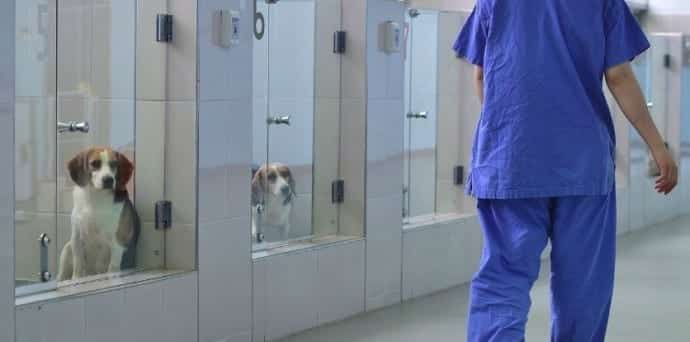A lab in South Korea clones dead dogs and replicates them into new pets for owners
For all those pet lovers in South Korea, there is good news. Sooam Biotech Research Foundation, which has an internationally acclaimed pet cloning facility, can now revive a dead dog for $100,000 (£69,000).
Over the last 10 years, the company has been running a progressing commercial business by catering to owners of dogs, who wish to have their pets forever. Pet owners around the world have utilized the facility to preserve their beloved pets in clone form.
Sooam Biotech clones many animals, including cattle and pigs for medical research and breed preservation, but is best known for its commercial dog service.
The Sooam Biotech Research Foundation in Seoul headed by Dr Woo Suk Hwong has so far cloned 700 dogs to date and claim they can replicate any dog regardless of its age, size and breed. Their client list boasts of celebrities, princess and billionaires, as well as owners and agencies who want to repeat the highly trained police dogs and rescue dogs.
Through their dog cloning service that can accurately bring forth a perfect pet replacement, they offer dog owners protection against grief and loss, Phys.Org reports.
“These people have a very strong bond with their pets … and cloning provides a psychological alternative to the traditional method, just letting the pet go and the memory of them”, said the researcher and spokesman of the Sooam Biotech Research Foundation Wang Jae-Woon.
“With cloning, you have a chance to bring back the pets,” he said in the facility’s “care room” where each cloned puppy is kept in a glass-fronted, temperature-controlled pen and monitored by researchers around the clock.
The same technique that was used to clone Dolly the sheep in 1996 is used in the dog cloning laboratory. The process requires a dead dog’s body to be put in the fridge and submitted to the facility. In five days, a mature cell from the dog can be successfully collected.
The process involves harvesting a mature cell from the dog to be copied and transferring its DNA to a donor egg cell that has had its own genetic material removed. The cell and the egg are “fused” with an electrical jolt, and the resulting embryo is implanted in a surrogate mother dog. Two months later, the cloned dog will be born as a new puppy.
The Sooam Biotech Research Foundation’s moral and ethical foundations are put into question not just because of the controversy in cloning pets but because of its founder, Hwang Woo-Suk. In two articles published in the journal Science in 2004 and 2005, Hwang claimed to have derived stem cell lines from cloned human embryos, a world first, which was later proved to be a hoax.
The scandal disclosed numerous ethical violations. Hwang was given a two-year suspended prison sentence in 2009, after being convicted of embezzlement and bioethical violations. “I think the only way to win the public’s trust back is making more genuine scientific breakthroughs,” Hwang said.
Head researcher Jeong Yeon-Woo says Sooam’s dog cloning service remains as the company’s most fulfilling aspect.
“They look like they found a child that had been missing,” Jeong said. “The moment of pure joy like that … makes me realise again why I’m doing this.”
Sooam’s most publicised project was its creation of five clones of Trakr, a rescue dog that found the last survivor of the 9/11 World Trade Center tragedy. It also joined forces with other cloning facilities such as BioArts International.
The company is now teaming up with other researchers in an ambitious plan to clone a mammoth from frozen remains found in Siberia.

